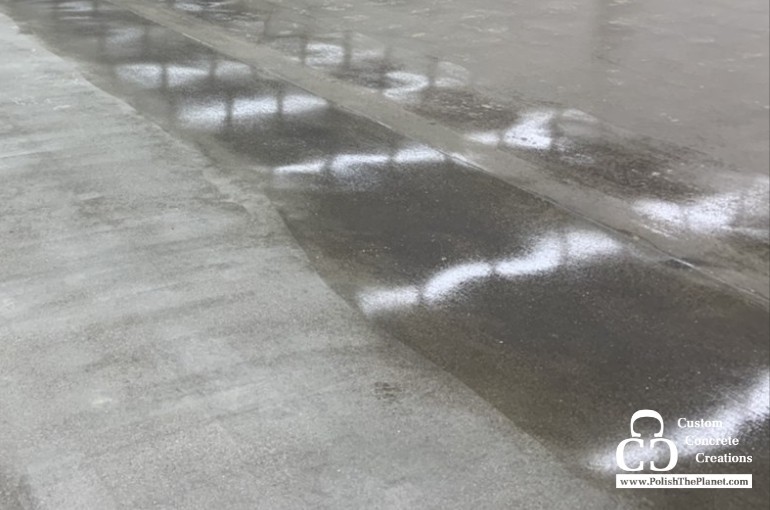
The season of spring is known for lots of rain, especially in the Midwest. Spring is a great time to ensure your concrete floor or patio is properly waterproofed. A waterproofing sealer acts as a layer of protection over the concrete, protecting it from moisture damage. This will help keep water out and ensure your concrete flooring is durable and lasts a long time. Here’s a guide to waterproofing concrete!
Waterproofing Methods
Bituminous Waterproofing
Bituminous waterproof coatings are a great option for commercial and residential buildings. This process uses bitumen, a viscous substance made from asphalt and coal-tar pitch. It’s made of organic materials and produces a very sticky and waterproof protection. This method is most often applied in areas such as dams and pools. The substance will need to be amended with acrylic-based polymers or polyurethane if exposed to direct sunlight. A bituminous membrane can also be used to waterproof; they work best for concrete roofs with low slopes.
Cementitious Waterproofing
This is the most efficient, easiest and cheapest method. With cementitious waterproofing, cement is mixed with other bonding materials, which are readily available, to create a mixture that is then applied to the concrete. This method is most often used in areas like washrooms, bathrooms and water treatment plants.
Crystalline Admixtures
Crystalline admixtures use water to form crystals inside the concrete. The mixture usually consists of Portland cement, silica sand and other chemicals. It comes in powder form and can be added to the concrete mix at the job site.
Liquid Waterproofing
A liquid waterproofing membrane is applied by spraying or rolling it on the concrete. It consists of one primer coat and two waterproof coats. It forms a rubber-like coating on your concrete, similar to epoxy. This method is best for covering large areas. Liquid waterproofing can also withstand extreme weather conditions.
Polyurethane Waterproofing
Polyurethane waterproofing is made of a polyol base and an isocyanide reactor. It’s resistant to UV rays from direct sunlight, fuels, battery acids and harsh weather conditions. Be sure to evaluate the moisture of your concrete before applying so that it bonds correctly. It’s good for flat surfaces and durable enough for spaces like garages, car dealerships and showrooms and airplane hangars.
Reach out to an expert for your concrete floor
The best way to know your concrete floor is waterproofed correctly is to hire a professional. A concrete company knows exactly what they’re doing and you can have peace of mind knowing they’ve got the job done! Contact us today with any questions, comments or concerns.
